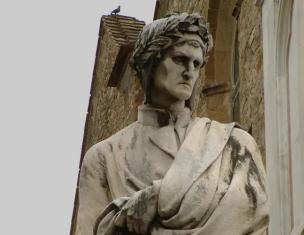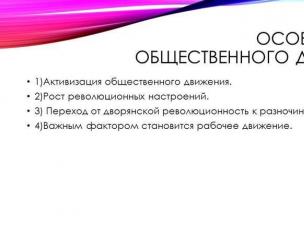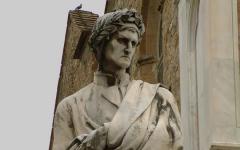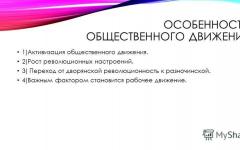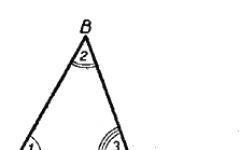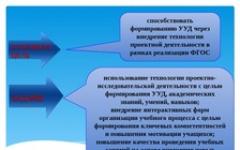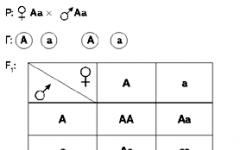Bye Nobel Committee choosing which of the current candidates should be awarded the Peace Prize - I remembered this story.
Stanislav Petrov - the man who prevented nuclear war in 1983.
Dry information from Wikipedia:
“On the night of September 26, 1983, Lieutenant Colonel Stanislav Petrov was the operational duty officer of the Serpukhov-15 command post, located 100 km from Moscow. At that time, the Cold War was at its peak: three and a half weeks ago Soviet Union there was a downed Korean passenger Boeing 747.
The command post, where Petrov was on duty, received information from the space early warning system that had been put into service a year earlier. In the event of a missile attack, the country's leadership was immediately notified, which made a decision on a retaliatory strike.
On September 26, while Petrov was on duty, the computer reported the launch of missiles from an American base. However, after analyzing the situation (“the launches were made from only one point and consisted of only a few intercontinental ballistic missiles”), Lieutenant Colonel Petrov decided that this was a false alarm of the system.
A subsequent investigation determined that the cause was the satellite's sensors being illuminated by sunlight reflected from high-altitude clouds. Later, changes were made to the space system to eliminate such situations.
Due to military secrecy and political considerations Petrov's actions became known to the general public only in 1988.
On January 19, 2006, in New York at the UN headquarters, Stanislav Petrov was presented with a special international award public organization"Association of World Citizens". It is a crystal figurine of “Hand Holding the Globe” with the inscription “To the Man Who Prevented Nuclear War” engraved on it.
After retiring, Lieutenant Colonel Stanislav Evgrafovich Petrov lives and works in Fryazino, near Moscow."
The Nobel Prize is given for achievements that have influenced the entire life of mankind. They are given for discoveries that could actually have been made decades ago and have proven their value over time. Nobel prizes are given for books written a long time ago: so that their value can be proven by time. They are given alive, although this year the committee made an exception. And only the Peace Prize in last years is a constant source of confusion.
So: in my opinion, the actions that Colonel Petrov took saved the world from a nuclear disaster: if he had been mistaken in his assessments, we all might not have existed at all. Perhaps, together with the planet on which we all live. The accuracy of his assessment has been confirmed by time, and its significance is difficult to underestimate. He is our contemporary and a completely worthy candidate from our country.
I would very much like it to be remembered not only about politicians (whose actions cannot always be unequivocally assessed over the course of one life) when deciding who should receive the Peace Prize.
Yes and simply - good story with a happy ending. Just what you need on a warm and sunny Friday.
Having prevented a nuclear war with the United States, he died on May 19, 2017 in the city of Fryazino, Moscow Region, at the age of 78 - this information was confirmed by his son.
“Yes, I confirm, he died back in May,” Zvezda quotes Dmitry.
Earlier, reports of the death of the legendary military man were published by foreign media. His German acquaintance Karl Schumacher called a friend on September 7 to congratulate him on his birthday and found out that Petrov had passed away. He published an obituary on his blog, after which on September 14 an article in memory of the Soviet officer was published by a regional German publication.
In 2016, Petrov, in an interview with the KP.Ru website, spoke about what happened on September 26, 1983.
“At 0.15 at the command post of the missile attack warning system (MAWS) in the secret part of Serpukhov-15, the computer reports: a ballistic missile was fired from US territory. The target is the USSR.
The machine shows that the reliability is the highest. The siren is screaming. At the top there are big red letters: “Start”. This means the rocket definitely went off. I looked down at my crew. Some even jumped up from their seats and turned to look at me. I had to check everything. It couldn’t be that this is actually a missile with warheads…” the specialist pointed out.
According to him, the first thing that seemed unreliable to Petrov was why the missiles, which in such an attack should come from different bases, came from one point.
“In a couple of minutes there will be a call via government communications. I pick up the phone and report to the person on duty: “I’m giving you false information.” He answered briefly: “Got it.” And then the system roared again. The second rocket went off. And then within three minutes three more times. The inscription “Start” changed to “Missile attack”. But visual contact specialists report that we see nothing. Over-horizontal radar is also nothing,” says the former officer.
In a conversation with Gazeta.Ru, Petrov explained that in addition to logical thinking He was also guided by intuition.
“I was an algorithmist. I learned all the programs and knew them much better than the computer. The computer can never be smarter than a person who created it.
After all, a computer solves everything mathematically, but a person still has something unpredictable deep down in his soul. And I had this unpredictable feeling too. That’s why I allowed myself not to trust the system, because I’m a person, not a computer,” he said.
Soon State Commission accused Petrov of not filling out the combat log.
“What should I fill in if I have a microphone in one hand and a telephone receiver in the other to report? And then it was also impossible to write - this is an addition, a criminal offense. Then I had a very hard time. They began to look for flaws, and those who want to find a flaw will definitely find it. Colonel General Yuri Votintsev then scolded me, and then, 10 years later, he apologized in print (in 1993, Gazeta.Ru),” the former military man admitted.
A subsequent investigation determined that the cause was the satellite's sensors being illuminated by sunlight reflected from high-altitude clouds. Later, changes were made to the space system to eliminate such situations.
On January 19, 2006, in New York at the Headquarters, Stanislav Petrov was presented with a special award from the international public organization “Association of World Citizens”.
It is a crystal figurine of “Hand Holding the Globe” with the inscription “To the Man Who Prevented Nuclear War” engraved on it.
On February 24, 2012, he was awarded the German Media Prize for 2011 in Baden-Baden. On February 17, 2013, Petrov became a laureate of the Dresden Prize, awarded for the prevention of armed conflicts (the monetary value of the prize is €25 thousand).
In 2014, Danish director Peter Anthony made a feature film documentary about Petrov - “The man who saved the world.” The film premiered in October 2014 at the Woodstock Film Festival, New York, where the film received two honorable mention awards: Audience Award Winner for Best Narrative Feature and James Lyons Award for Best Editing of a Narrative Feature.
27.09.2015
And for the finale, we want to tell you one instructive story about politics, war and common sense. It happened a long time ago - in September 1983, but it would be useful to hear for those who today like to scare the whole world with an imminent war, aggression or promises to create new military bases on foreign borders. It’s scary to imagine what kind of troubles inappropriate politicians can lead to if something really serious happens—a technical failure or a provocation. This is the story of how a nuclear war almost started in the fall of 1983. But the threat was real: at night, missile attack warning systems screamed in alarm - missiles were launched towards the Soviet Union from an American base. There was only one instruction in case of such an emergency - shoot down the missiles. But Lieutenant Colonel Petrov was on duty that night, but he did not carry out this order and did not press the start button. Between the tribunal and common sense he chose the latter. But who is he - a hero or an oath breaker? So what happened then, on the night of September 26, 1983, who almost started a nuclear war against us?
Our special correspondent Dmitry PISCHUKHIN was looking for details of this long-standing story. But first he went to Fryazino near Moscow to meet with Stanislav Evgrafovich himself, now a military pensioner.
1983 The very peak " cold war" American President Ronald Reagan for the first time calls the Soviet Union the “Evil Empire.” Western propaganda carefully creates the image of a bloodthirsty enemy from our country. Under the pretext of the threat of attack, the United States is modernizing its strategic nuclear forces and is building the latest intercontinental ballistic missiles. However, no one could even imagine that nuclear Armageddon could begin not due to malicious intent, but by accident due to a fatal mistake.
Fryazino town near Moscow. Typical high-rise building. The residents of the house are clearly surprised by the arrival of the television. It seems that no one realizes that their neighbor, a modest military pensioner, once saved the world from a nuclear disaster.
“Tell me, do you consider yourself a hero?”
“No, what I don’t consider is a hero.”
At the end of September 1983, Lieutenant Colonel Stanislav Petrov went into service in place of his sick partner. Having made strong tea as usual, he prepared for another boring shift. The analyst knew the location of American missile silos by heart. Reconnaissance satellites recorded any unusual phenomenon on enemy territory. But suddenly the silence of the night was unexpectedly interrupted by a deafening alarm.
Stanislav Petrov, former employee of the Serpukhov-15 command post, retired lieutenant colonel:“It was out of the blue. Zero hours fifteen minutes on the electronic clock. Suddenly a siren starts blaring, the “Start!” banner flashes. in big blood-red letters."
Computers showed Petrov that the United States had just started a nuclear war. An intercontinental ballistic missile was launched from one of the American military bases, this was clearly evidenced by satellite data. There was no more than 15 minutes of time to think - that’s how long a warhead flies from the USA to the USSR. The decision to retaliate with a nuclear strike had to be made immediately. Cold sweat ran down Petrov's back.
Stanislav Petrov, former employee of the Serpukhov-15 command post, retired lieutenant colonel:“I stood up from the control panel, and my heart sank. I see people are confused. The operators turned their heads, jumped up from their seats, everyone was looking at me. I was scared, frankly."
Everyone knew very well what to do in the event of a nuclear attack; Soviet officers had gone through similar scenarios more than once during exercises. But was it possible to calmly press the “start” button when everyone still remembered well terrible catastrophe Hiroshima and Nagasaki? Moreover, literally just now, in September 1983, the intensity of relations between the USSR and the West reached its peak. A plane flew into Soviet airspace over Kamchatka without permission and ignored all radio signals and warnings. The command decided that he was an American spy and ordered his destruction.
Jonathan Sanders, professor of journalism at Stony Brook University, former correspondent for CBS in Moscow: “This was a provocation on the part of the CIA, which made a bad situation even worse. The Russian controller told the pilot to shoot down the plane. Not long before this, an American spy plane actually flew over Kamchatka. And then he appeared on the radar again. And since he was in Soviet airspace - because of stupidity, just stupidity! - we could have started World War».
It turned out that the fighters had fired missiles at a civilian Boeing of South Korean Airlines, which had gone off course. More than two hundred passengers and crew members died. Reagan again blamed the “Evil Empire” for everything. This incident freed America's hands - the States are beginning to deploy medium-range missiles in Europe. The then Secretary General Andropov states that a symmetrical response will be given in the near future.
Matvey Polynov, doctor historical sciences, professor of the department modern history Russia SPbSU:“The world is on the brink of nuclear war. When we supplied our missiles to the GDR and Czechoslovakia, this did not balance our security. The fact is that if American missiles reached the territory of the USSR, they covered the entire European part USSR, then the Soviet missiles did not reach the target - the United States."
In such dramatic circumstances, Lieutenant Colonel Petrov had to make a difficult decision - to report to the top about a nuclear attack or to double-check the data. Counting the time of the missiles' approach to Moscow, the intelligence analyst dialed the commander's number.
Despite the fact that the detection systems assessed the probability of an attack as one hundred percent, Lieutenant Colonel Petrov refused to carry out job descriptions and report the attack to the top. He was confused that the Americans carried out all the launches from one single base. Therefore, Petrov turned off the alarm and took full responsibility upon himself.
Stanislav Petrov, former employee of the Serpukhov-15 command post, retired lieutenant colonel:“I pick up the tube. I gave you false information. And at this time the siren roared again - the second start has begun! I affirm that the second goal will also be false.”
The difficult decision that Stanislav Petrov made threatened him with a military tribunal. But the experienced military man did not give in to emotions and in the end turned out to be right. The world, which was on the verge of destruction within 15 minutes, was saved.
Stanislav Petrov, former employee of the Serpukhov-15 command post, retired lieutenant colonel:“I had a crazy thought, what if I was wrong. Well, what can they do with five missiles? The maximum will fall on Moscow, but nothing more. The state will remain intact."
From his time at military school, Petrov remembered illustrative case. In October 1962, during the Cuban Missile Crisis, a Soviet submarine comes under American bombing off the Cuban coast. The submarine is forced to lie deep on the bottom, which causes it to lose contact with the shore. Moscow has not given any signals for two weeks. The commander comes to the conclusion that the third world war has begun and decides to release the entire nuclear arsenal towards America. The captain is stopped by the assistant, who offers to ascend at his own risk. Already on the surface, the sailors realized that they could have made a fatal mistake.
Sergey Boev, CEO JSC "RTI", general designer national system warnings about a missile attack: “The human factor is always present in complex technical systems, and we must always be prepared for them, on the one hand. But with the development of technology, speed and processing of the information it receives, then, of course, today the influence of the human factor is decreasing.”
The “secret” stamp on the story that happened to Petrov was removed only in the late nineties. Ten years ago, at the UN headquarters, a retired lieutenant colonel was even presented with a special award - “The Man Who Saved the World.”
Dmitry Pishchukhin, correspondent:“Would you start World War III?”
Stanislav Petrov, former employee of the Serpukhov-15 command post, retired lieutenant colonel:“I will not be the culprit of the Third World War, that’s all.”
Back in 1983, the world lived as usual, unaware of the catastrophe it was facing. The fact that Petrov prevented an almost inevitable exchange of nuclear strikes was recognized by many military experts. But what if there was someone else in his place? Or would the lieutenant colonel have come to duty that day in a bad mood? What would happen to us if a military man lost his nerve at the last moment? What would the world look like after the nuclear apocalypse? And could this story teach the nuclear powers anything?
After a lengthy check, it turned out that the optics of military satellites mistook solar reflections on the surface of high-altitude clouds for missile trails. The 1983 crisis unfolded behind closed doors and exposed many deficiencies in both countries' nuclear shields. But the main thing that the world learned is that the safety of the planet can depend on the composure and responsibility of just one person.
MOSCOW, September 21 – RIA Novosti. Soviet Lieutenant Colonel Stanislav Petrov, who recognized an erroneous signal about an American nuclear missile strike on September 26, 1983 and prevented the launch of missiles against targets in the United States, received a scolding from his superiors instead of encouragement and was forced to resign from his job. military service, scientific director of the Russian Military Historical Society (RVIO) Mikhail Myagkov told RIA Novosti on Thursday.
Officer Petrov received the Dresden Prize for preventing war“The feat of Stanislav Petrov will go down in history as one of the greatest deeds in the name of peace in recent decades,” said Heidrun Hannusch, chairman of the Friends of Dresden in Germany.Sun ray like a rocket
Stanislav Evgrafovich Petrov was born on September 7, 1939 in Vladivostok. Graduated from the Kiev Higher Engineering Radio Engineering School. In 1972, he was sent to serve at the Serpukhov-15 command post near Moscow. His responsibilities included monitoring the proper functioning of the missile attack warning system spacecraft.
On the night of September 26, 1983, he was at the operational duty post of the system. A message appeared on the computer of the information processing center from the satellite with high degree reliability of the launch of five nuclear-equipped intercontinental ballistic missiles from US territory.
“Lieutenant Colonel Stanislav Petrov, who was on duty at that time, was in a state where the fate of the whole world could depend on the decision of one person, had he made a decision that was laid down according to the rules. He had to notify his command, then the Soviet leadership was notified and the retaliatory strike system was put into action ", said Myagkov, noting that, having engineering knowledge and an analytical mind, Petrov was able to calculate that the Americans launched the missile from one point - this could not happen in the event of a massive strike.
“He began to doubt, and, in the end, made the right decision that this was a system error. As it turned out later, the sun’s rays, reflecting from the clouds, illuminated the Soviet detection sensors,” said the scientific director of the Russian Military Research Institute.
The agency's interlocutor noted that the lieutenant colonel's commanders did not appreciate his contribution to strengthening peace.
"Stanislav Petrov then received a scolding from his superiors, was forced to resign, was in the hospital. And international awards found him only later. But this is really the one unique case“When we were on the verge of a catastrophe due to an error made by technology, but it was the human factor that was able to save us, our country, and the whole world from a nuclear disaster,” Myagkov said.
Awarded abroad
Due to the secrecy regime, Petrov’s act became known only in 1993. In 2006, at the UN headquarters in New York, he received an award from the public organization "Association of World Citizens" with the engraving "To the person who prevented nuclear war." In 2012, in Baden-Baden, Germany, Petrov was awarded the German Media Prize. In 2013, he was awarded the Dresden Prize for the Prevention of Conflict and Violence in Germany.
Petrov died on May 19, 2017 in the Moscow region, which became known only in September 2017.
The USSR was forced to answer
Myagkov believes that there probably would not have been such a fierce confrontation and such risks if the United States had not pursued a policy of dragging the Soviet Union into the arms race and had not escalated conflicts related to nuclear weapons to the limit.
“The Soviet Union was forced to respond,” he emphasized, adding that the Cold War was a confrontation between two blocs, the Soviet and the Western, which used all resources to acquire geopolitical, ideological and economic supremacy in the world.
“In my opinion, the source of the Cold War was the results of World War II. Here the main responsibility lies with the United States, because it was they who became the first owners nuclear weapons, used it in Japan and, from the end of 1945, developed a plan for a nuclear strike on the Soviet Union. Certainly, nuclear factor played a key role in the Cold War,” Myagkov noted.
According to him, by the early 1960s, the USSR had an order of magnitude fewer nuclear warheads and was at a disadvantage, which prompted the Soviet leadership to take tough economic measures in order to increase its military, primarily nuclear, potential.
“Nevertheless, during the Cold War there were a number of crisis moments that we are studying today and drawing conclusions in order to prevent such a confrontation from happening again, when the world stood on the brink of a nuclear disaster and could turn to ashes. This is the period Korean War, when the United States dominated us in the number of nuclear weapons, this is the Cuban Missile Crisis of 1962, when the war was literally just a hand away. In both cases, a large share of responsibility lies with the United States,” said the scientific director of the RVIO.
Lesson for America
According to Myagkov, “Americans must draw conclusions from this situation.”
“After all, both the USSR at that time and today’s Russia are ready to deliver a retaliatory nuclear strike in the event of an attack. Let’s ask ourselves, could there be such people (like Lieutenant Colonel Petrov - ed.) in American headquarters and in American technical missile detection points? This is also an important lesson not only for us, but also for them,” said RIA Novosti’s interlocutor.
Answering a question about the possibility of perpetuating the memory of Petrov in Russia, he said that “the Russian Military Historical Society is ready to consider such an initiative.”
On the night of September 26, 1983, the world was closer than ever to a nuclear disaster, and only the professionalism of Lieutenant Colonel Stanislav Petrov saved the lives of most of the world's population.
On the threshold of the Apocalypse
The beginning of the 80s of the last century became the most dangerous time after the Cuban Missile Crisis of 1962. The confrontation between the Soviet Union and the United States reached its climax, and American President Ronald Reagan dubbed the USSR an “evil empire,” promising to fight it with all available means.
On input Soviet troops The Americans responded to Afghanistan with economic sanctions, simultaneously boycotting the Moscow Summer Olympics, and began to strengthen missile forces near the borders of the USSR. In response, the Soviet leadership refused to send its athletes to Los Angeles for the 1984 Summer Olympics, and air defense systems were actively preparing to repel a possible nuclear strike.
On September 1, 1983, Soviet fighters shot down a South Korean Boeing over Sakhalin, killing all 269 people on board.
Only years later it would become clear that the autopilot on the plane was not working correctly, and the airliner completely unintentionally entered Soviet airspace twice. And then everyone expected a response from the Americans, which could be completely unpredictable.
The completely untested "Oko" system
The Serpukhov-15 Celestial Observation Center near Moscow (100 km from the capital) actually monitored the territory of the United States and other NATO countries. Numerous Soviet spy satellites regularly transmitted information about American launchers located on the west and east coasts of the United States, recording all missile launches without exception.
The military was helped in this by a 30-meter locator and a giant M-10 computer, which processed satellite information in a split second. But the real highlight was the Oko space-based missile early warning system, which was put into service in 1982.
It made it possible to record even the opening of launch silo hatches, and at launch it determined the trajectory of the missiles and made it possible to determine the target chosen by the Americans.
According to military estimates, the American missile had to fly at least 40 minutes to Moscow and other targets in the European part of the USSR. Time is quite sufficient to launch a retaliatory nuclear strike.
Missile strike or system failure?
On the night of September 26, 1983, more than 100 military personnel took up duty at the Center, each of whom was responsible for his own area of work. The operational duty officer, a 44-year-old lieutenant colonel, had to coordinate their actions and make timely decisions Stanislav Petrov.
The duty was calm, and the huge locator received signals from the Cosmos-1382 satellite, flying above the earth at an altitude of 38 thousand kilometers. And suddenly at 00.15 a siren sounded deafeningly, announcing the launch of a Minuteman III intercontinental ballistic missile with a nuclear warhead from the west coast of the United States.

The officer contacted the missile attack warning system command post, where he was confirmed to have received the same signal. All he had to do was pass the message along to the authorities, and within ten minutes our missiles could launch from the territory of the USSR towards the United States.
But the lieutenant colonel drew attention to the fact that the soldiers conscript service, which should monitor the movement of the rocket, do not see it at all. False alarm? Signals are heard about the second, third and fourth launches, but again no missiles are visible. And then Petrov decided to inform the command about the failure of the warning system, asking not to launch a retaliatory missile attack.
He put his own life on the line
This is the commander of the USSR anti-missile and anti-space defense forces who urgently arrived at the Center this morning Yuri Votintsev will shake the lieutenant colonel's hand, thanking him for his vigilance and high professionalism. And that night Petrov simply put his career and life on the line, because in case of a mistake he would inevitably face a tribunal and a guaranteed death penalty.
The commission that arrived at the scene quickly established the cause of the failure, which was associated with the imperfection of spacecraft of that time and errors in the computer program.
The Oko early missile warning system, which almost provoked a nuclear war, will be “brought to fruition” for another two years, and Lieutenant Colonel Stanislav Petrov will be quietly “pushed” into retirement in 1984. So as not to talk too much. And the story itself was kept in the strictest confidence until 1991, when Yuri Votintsev told one of the publications about it.
The unsung hero of our time
The role of Stanislav Petrov in preventing the Third World War became known much later. In January 2006, the retired officer was invited to New York, where at the UN headquarters he received a crystal figurine of “Hand Holding the Globe.” On it the engraver wrote the inscription: “To the man who prevented a nuclear war.”
In February 2012, Stanislav Petrov became a laureate of the German media prize, and a year later he was awarded the prestigious Dresden Prize for the Prevention of Armed Conflict.

In his later years, he was remembered in our country, and in 2014 they even made a documentary film, “The Man Who Saved the World.”
He died quietly on May 19, 2017 in Fryazino, near Moscow. Stanislav Evgrafovich did not like to brag about the past, and even his neighbors had no idea that they lived next to Soviet officer, which stopped the outbreak of World War III and saved millions of human lives.

